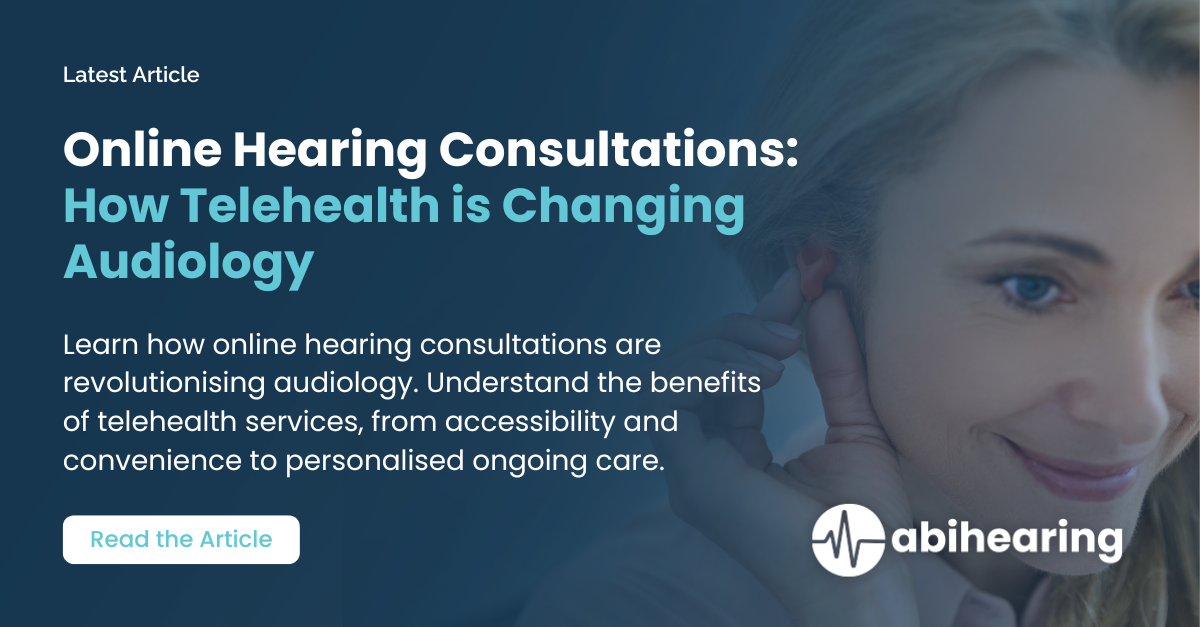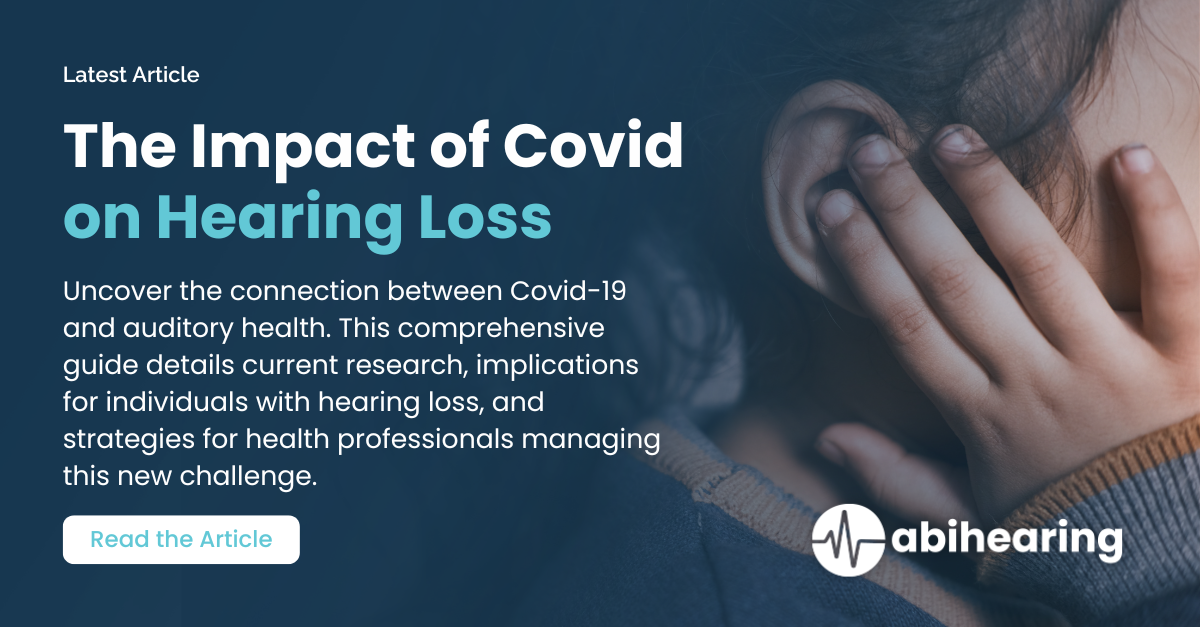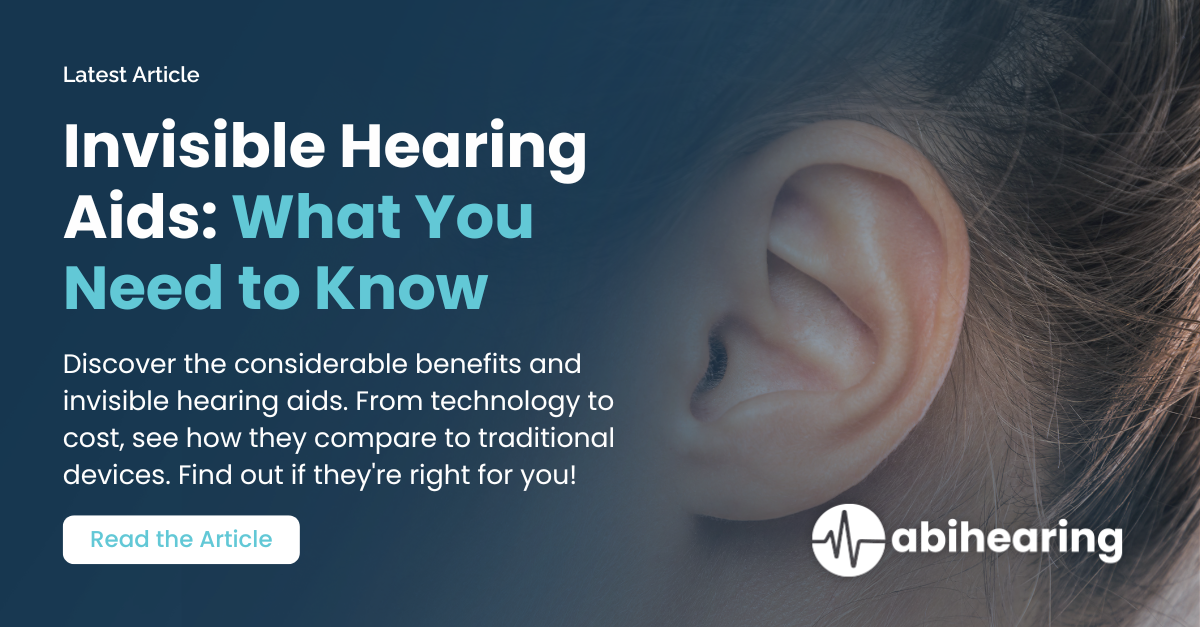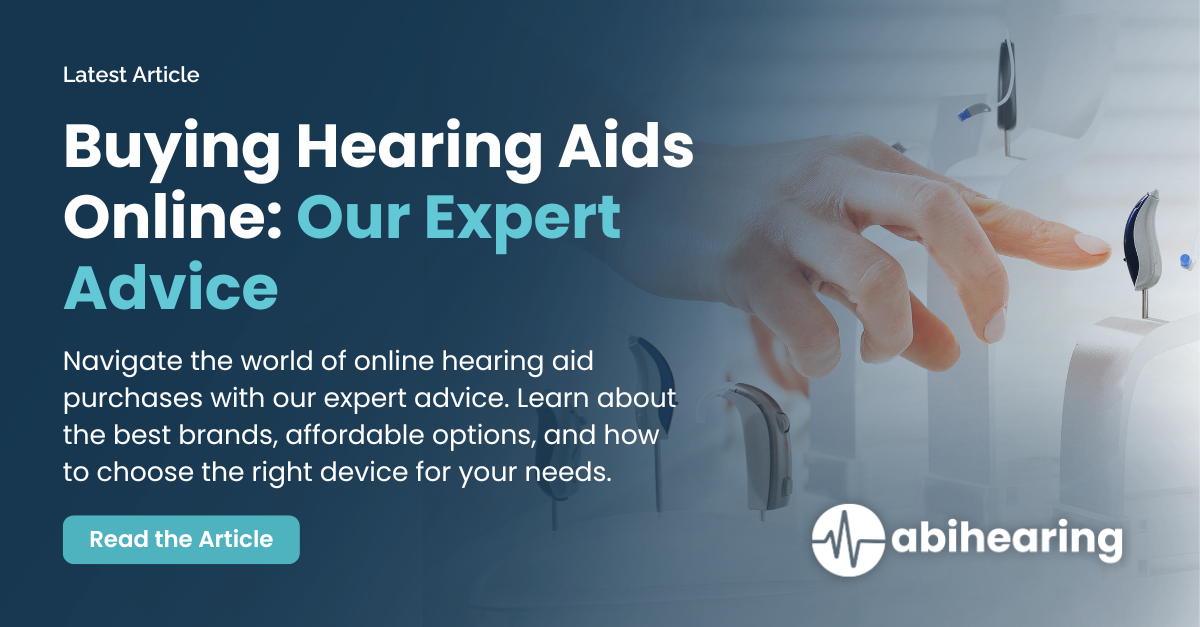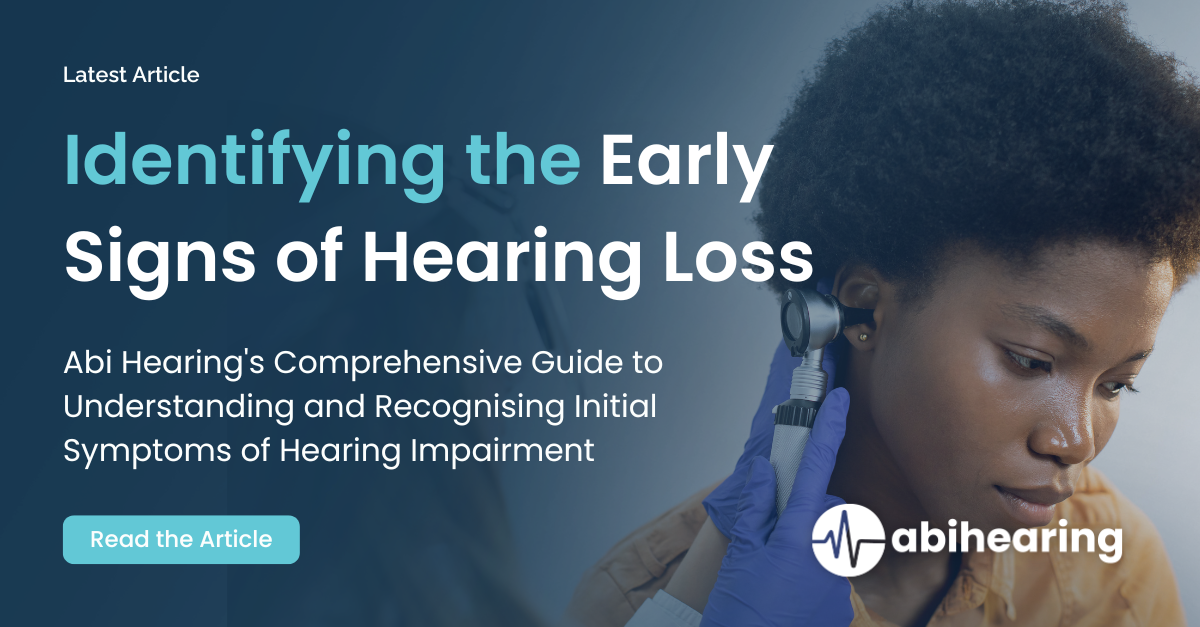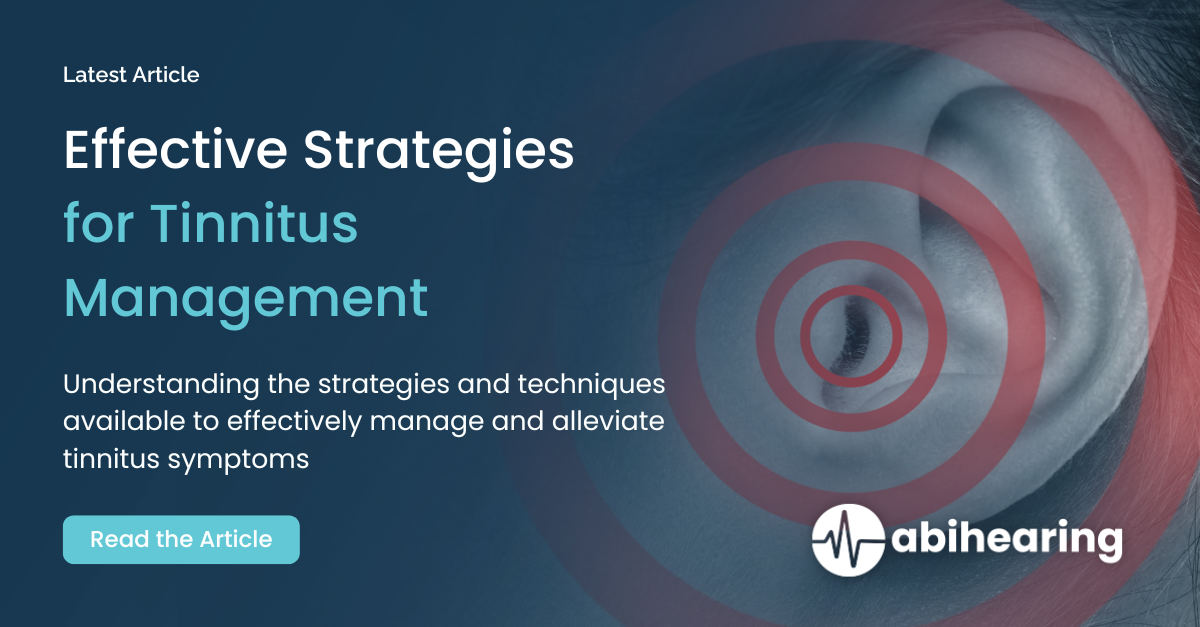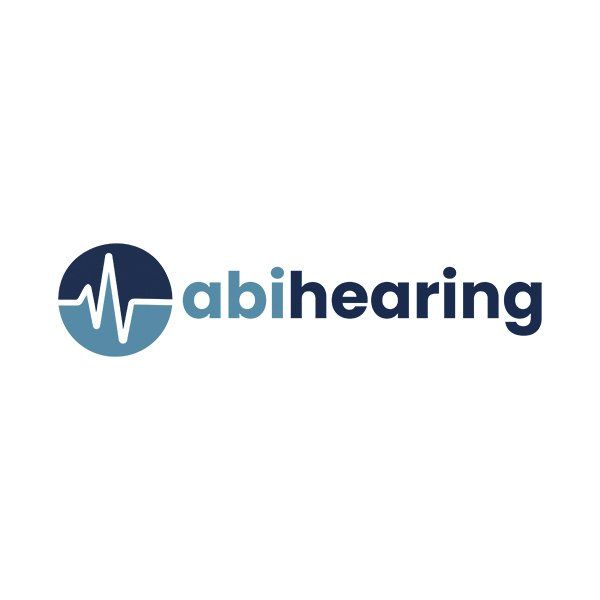World Hearing Awareness Week Australia
Hearing Awareness Week Australia commences today, 1st March 2021.
This week is “World Hearing Awareness Week” and the team at Abi Hearing are excited to be raising awareness about the prevalence of hearing loss and ear related conditions in our local community. We aim to help Australian’s living with hearing loss to understand more about their specific conditions as well as the available options when it comes to treatment and technology in order to minimise the impact hearing loss has on their lives.
The World Health Organisation has partnered with leading hearing health alliance partners globally to spread a unified message about how we can all contribute to helping policy makers and the general public understand the widespread nature of hearing loss related conditions in our community as well as how we can all better support people who are affected.
This year, hearing health professionals are uniting to promote a single global message.
“Hearing Care for All. Screen. Rehabilitate. Communicate.”
Around 466 million people world-wide suffer from a disabling level of hearing impairment. Astonishingly, this figure is expected to rise to over 900 million by the year 2050.
What is even more concerning, is that around 10% of these cases are children and that 60% of childhood hearing loss is preventable through either early diagnosis and treatment, or better hearing care from a young age.
Recreational Related Hearing Loss is on The Rise
Whilst most of the conversation regarding preventing hearing loss often involves Occupational settings, we now know that recreational activities are becoming increasingly linked to hearing loss, especially in the younger community.
One of the most common causes is the overuse of ‘in ear’ headphones and both the volume and exposure time to excessively loud sounds has been linked to early onset hearing loss in children, teenagers and young adults.
Whilst there is an ever-growing list of screening and treatment options available, preventing hearing loss in the first place should be our primary focus.
Common Causes of Hearing Loss and Deafness
Congenital Causes of Hearing Loss
Congenital causes may lead to hearing loss being present at or acquired soon after birth. Hearing loss can be caused by hereditary and non-hereditary genetic factors or by certain complications during pregnancy and childbirth, including:
- maternal rubella, syphilis or certain other infections during pregnancy
- low birth weight
- birth asphyxia (a lack of oxygen at the time of birth)
- inappropriate use of particular drugs during pregnancy, such as aminoglycosides, cytotoxic drugs, antimalarial drugs, and diuretics
- severe jaundice in the neonatal period, which can damage the hearing nerve in a newborn infant
One of the most important factors in treating congenital hearing loss and improving the standard of care for our clients is early detection. Abi Hearing specialise in hearing health screening, treatment and technology for new-borns, toddlers, children and teenagers and work with our clients’ parents to define a treatment program that will best support them to live life unobstructed.
Acquired Causes of Hearing Loss
Acquired causes may lead to hearing loss at any age, such as:
- infectious diseases including meningitis, measles and mumps.
- chronic ear infections.
- collection of fluid in the ear (otitis media).
- use of certain medicines, such as those used in the treatment of neonatal infections, malaria, drug-resistant tuberculosis, and cancers.
- physical injury to the head or ear.
- excessive noise, including occupational noise such as that from machinery and explosions.
- recreational exposure to loud sounds such as that from use of personal audio devices at high volumes and for prolonged periods of time and regular attendance at concerts, nightclubs, bars and sporting events.
- ageing, due to degeneration of sensory cells; and
- wax or foreign bodies blocking the ear canal.
The Impact of Hearing Loss on Individuals and Their Loved Ones
When looking into the real-world impact that hearing loss has on our client’s lifestyle, we divide impacts into three categories to help better understand and deepen our knowledge on the affects of hearing loss.
1. Functional Impact of Hearing Loss
Difficulty in Communication. One of the most important considerations in defining a treatment plan for hearing loss is the impact that the condition has on a client’s ability to both understand communication from others and communicate clearly themselves. On of the most common symptoms for children with undiagnosed hearing loss is a delay in their ability to community when compared to their peers.
Reduced Academic Performance. This delay can have significant adverse effects when it comes to academic performance. Children with hearing loss, especially when untreated can increase the need for additional educational assistance. Whilst certain accommodations can be made to help children thrive in traditional education settings, implementing such accommodations isn’t always possible.
2. Social and Emotional Impact of Hearing Loss
Regardless of age, hearing loss can leave sufferers feeling a level of detachment from their family, friends and community, especially in cases where hearing loss has occurred suddenly and without warning. Our goals when treating hearing loss is to ensure our clients are able to achieve the maximum level of hearing with the assistance of treatment and hearing devices and to help them focus on living an enriching life.
Without treatment, clients often experience feelings of loneliness, isolation and frustration, particularly amongst older patients who are also isolated due to other reasons.
3. Economic Impact of Hearing Loss
The WHO has conducted a global study into the economic impacts of hearing loss. They estimate that the impact of hearing loss is up to $750 billion per annum globally, which factors in the cost of hearing screening, treatment and technology as well as the cost of educational support for people suffering hearing loss. In addition to these factors, they have also considered the loss of productivity and other societal costs that come with an increasing percentage of the population presenting with hearing loss and other ear health conditions.
More concerningly, the decrease in both education rates and employability for those with both diagnosed and undiagnosed hearing loss is startling. This is even further amplified in developing countries who may not have access to the treatment and technology available in more developed countries.
Prevention and Treatment Should Be Equally Prioritised
Research indicates that almost 50% of hearing loss can be prevented through better public health initiatives and awareness. This figure jumps to 60% when focussing on children under the age of 15, jumps again to 75% in developing countries, when compared to 49% in developed countries.
Common and preventable causes of hearing loss include:
- Infections such as mumps, measles, rubella, meningitis, cytomegalovirus infections, and chronic otitis media (31%).
- Complications at the time of birth, such as birth asphyxia, low birth weight, prematurity, and jaundice (17%).
- Use of ototoxic medicines in expecting mothers and babies (4%).
- Others (8%)
Strategies to increase the rates of preventable hearing loss include:
- immunizing children against childhood diseases, including measles, meningitis, rubella and mumps.
- immunizing adolescent girls and women of reproductive age against rubella before pregnancy.
- preventing cytomegalovirus infections in expectant mothers through good hygiene; screening for and treating syphilis and other infections in pregnant women.
- strengthening maternal and child health programmes, including promotion of safe childbirth.
- following healthy ear care practices.
- reducing exposure (both occupational and recreational) to loud sounds by raising awareness about the risks; developing and enforcing relevant legislation; and encouraging individuals to use personal protective devices such as earplugs and noise-cancelling earphones and headphones.
- screening of children for otitis media, followed by appropriate medical or surgical interventions.
- avoiding the use of drugs which may be harmful to hearing, unless prescribed and monitored by a qualified physician.
- referring infants at high risk, such as those with a family history of deafness or those born with low birth weight, birth asphyxia, jaundice or meningitis, for early assessment of hearing, to ensure prompt diagnosis and appropriate management, as required.
- implementing the WHO-ITU global standard for personal audio systems and devices. This can be done by governments and manufacturers of smartphones and MP3 players. If adhered to, the standard could help prevent hearing loss due to listening practices that are harmful to hearing; and
- educating young people and population in general on hearing loss, its causes, prevention and identification.
In Summary
Abi Hearing is excited to be exploring and supporting the many channels available to us to help increase awareness of the causes and treatments of hearing loss as well as the technology that can support our clients in regaining full quality of life.
We hope to help our community better understand the prevalence of hearing loss both here in Australia as well as around the world. We seek to help educate about the best practices when it comes to designing an active prevention strategy, and how important it is to consider hearing health as a key part of a holistic wellness plan for people of all ages.
If you would like to know more about Hearing Health Week and how you can support the cause, please reach out to one of our expert Audiologists to start a discussion.


